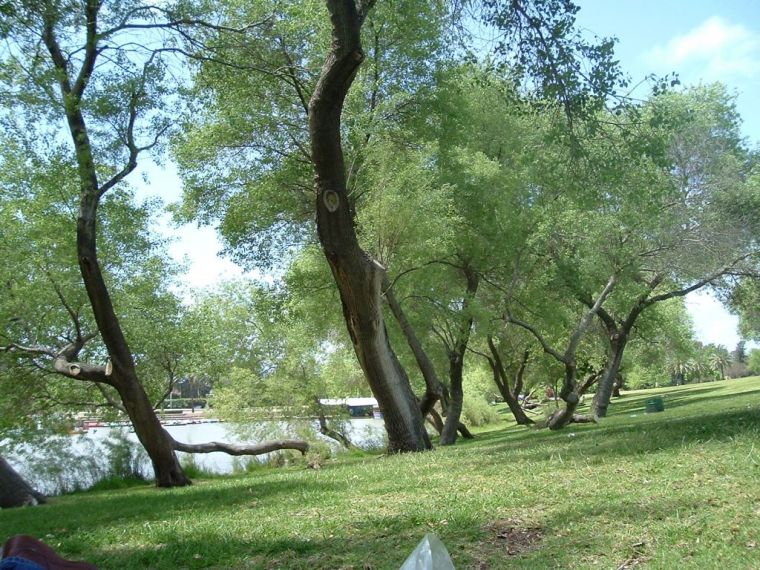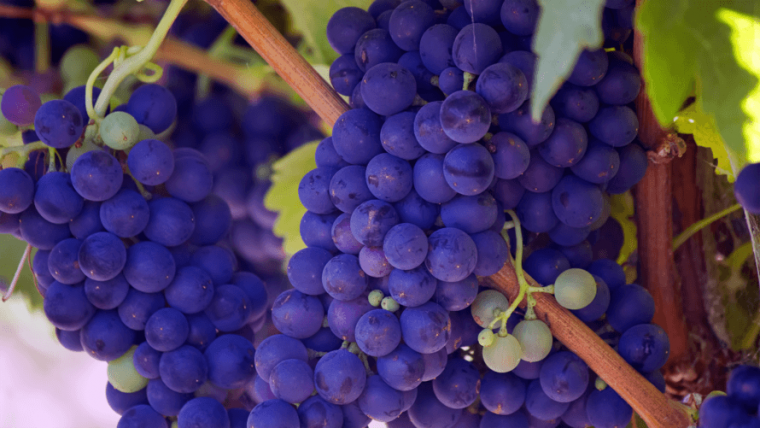Jewish New Year for Trees, and how the well rooted can help others with spiritual integrity
Today is Tu BShvat: Jewish New Year for Trees. Just as today small Jewish children all over the world will take part in a ceremony that will hopefully help them grow into mentoring trees – adults planted well into the soil of their own being – so the enshrining of tree-planting in a Jewish religious festival is as important as the commemoration of the Exodus from Egypt which takes place exactly two months from now at Pesach, or the autumnal call to judge ourselves and be judged at Rosh Hashanah.

The importance of planting trees is not confined to the Jewish faith. Christian Today was recently sent the following from the Conservation Foundation: 'During the recent National Tree Week and Interfaith Week, hundreds of trees were planted across London to help improve the capital's air quality and biodiversity and increase its canopy cover...With the help of the London Tree Officers Association, the Foundation chose 12 different species noted for their ability to reduce pollution and attract pollinators including mulberry, yew, cypress, tulip, apple, cherry and strawberry trees which are now growing in a variety of sacred spaces in the Dioceses of London and Southwark. With the help of schools, community groups, congregations and other volunteers, 340 trees were planted at 59 sites, either in churchyards or, where there was no suitable space, in a nearby school or community space nominated by local churches.'
Ecological awareness may have developed over the decades, but the spiritual guidance of trees has always been with us and is something that continues to bring all sorts of people together.
This is what the former Archbishop of Canterbury, Dr Rowan Williams, sent me after he helped launch the Tu Bshvat Shul project: 'It was a real inspiration to attend an event this week in which Tu Bshvat was used as an occasion to launch the 'ecosynagogue' project – a powerful witness to the deep sense of care and reverence for creation that is enshrined in Jewish practice. It was very clear at this event that care for the environment is seen as bound up with care for one's own spiritual integrity and the well-being of the neighbour.'
Thirty five years ago to the day my family first encountered Jewish New Year for Trees in Jerusalem. On the 15th of the Hebrew month of Shvat, my daughter, aged 8, was about to embark on an exciting primary school outing. The entire school was about to travel in a number of coaches to the Jerusalem surrounds where they would plant trees in honour of the first signs of spring – the signs of the first almond – Tu Bshvat: 'Wake up', says Isaiah, using the word 'sh-k-d', which also means 'almond'. And if you turn the letters around you get 'k-d-sh', which means holy.
If you want to define Judaism in a nutshell, nothing illustrates this better than the humble almond which also signifies holiness. Judaism is a bottom-up religion in which the planting of seeds by children is designed to wake them up to the waking up of spring, to teach them a lesson for life.
There are 4 New Years in Judaism and the one for trees goes back a long way. Judaism believes that trees are essential to the well-being of humanity and no more so than in Israel which came into existence largely through pioneers involved in the planting, a skill they have often exported to other developing countries in need of afforestation.
The Bible is full of arboreal metaphors including the very first and most famous – The Tree of Life and the Tree of Good and Evil.
What does the New Year for Trees have to do with the synagogue reading this week?
The Hebrew word for tree is etz and this is related to etzah – which means advice and counsel.
In Judaism the tree planted solid in the earth with its branches reaching out to heaven is a symbol of wisdom.
The synagogue reading is about Jethro, the Midianite father-in-law of Moses, who was the greatest prophet of Israel. Jethro was not Jewish, but was a great man who saw things with objectivity. He warned Moses that he would burn himself out unless he took on advisors to help him in his task of bearing the Jewish people on their journey to the Promised Land.
No one man could deal with all the challenges ahead. Law courts would have to be established all over the place and Moses would have to learn the secret of any good leader – how to delegate. And Moses listens and agrees. How many people in his position would do that today? Be willing to listen to someone outside the religion who can see the way things are going better than you can yourself? Not many!
Delegation involves trust. And trust involves letting go. And letting go is what we discussed last week when G-d told Moses to ask Pharaoh to let His people go in order to serve Him in the Land of His choosing.
Moses learns by trial and error that he is merely mortal and that the role of a prophet is not only to warn and admonish. It is also to liberate every member of his flock – from the roots so to speak – into becoming the potential shepherds they truly are – by example.
It is only after taking Jethro's advice that G-d gives the 613 statements (including the famous 10 commandments) to Moses on Mount Sinai to convey to the Jewish people.
Most prophets in history have an aura of power and holiness around them. Judaism is not like that. Any sense of personal aggrandizement or whiff of superiority is cut off at source. Moses is simply the vessel through which the Divine Torah is transmitted. It is up to the Jewish people to 'go learn it' so that they themselves can also fulfil the Divine will of becoming fully human.
With the prophet Malachi, prophecy ceased in Israel. From then on Jews were to concentrate on internalizing the Torah, the teaching of G-d.
Moses is considered to be an example in his own time – but posterity is not to follow him slavishly. The whole point is that living in Egypt is slavery – and the whole point now is to overcome slavery.
The whole point now is to find a mentor and to become a rabbi. A rabbi simply means 'teacher' and is not necessarily anything to do with courses and qualifications. A teacher in Judaism is someone who knows the Torah in the sense of intimate acquaintance and lives it out in every moment of their every-day life. It is deeds rather than words which count – by their fruits shall ye know them.

The Mishnah – based on oral teachings current in Jewish circles in the life-time of Jesus – says: 'A rabbi is similar to a tree: his essence must be planted deep, his own roots firmly planted in the house of the Lord. But he will only succeed in all his activities if he manages to follow the spread of the branches. For these branches provide shade for those poor souls who have spent a great deal of time wandering around in the barren wilderness and are no longer in touch with their Jewish selves. But eventually even these worn-out souls will surely hunger after the word of the Lord and thirst after the waters of Torah.'
This is the meaning of the 40 years of wanderings in the desert. Planting seeds is like implanting knowledge. To become a tree of life a person has to learn the difference between good and evil. Thus the journey through the wilderness is paralleled by the giving of the Torah – paradigms for life. This is what is meant by gaining life eternal.
The Bible is telling us that the Jewish people, both individually and communally, must learn how to look after themselves and this is what my daughter, aged 8, learned exactly 35 years ago today the very first time she planted a tree just outside Jerusalem.
And this is what her own 8-year-old daughter, my granddaughter, is also imbibing today, 35 years later, in Binyamina, a hamlet near Haifa. 70 years after the rebirth of a very old nation, which would not have thrived if not for her mentoring trees, children will be repeating an action that has taken place since time immemorial, rooted in ancient Biblical practice.
Dr Irene Lancaster is a Jewish academic, author and translator who has established university courses on Jewish history, Jewish studies and the Hebrew Bible.











